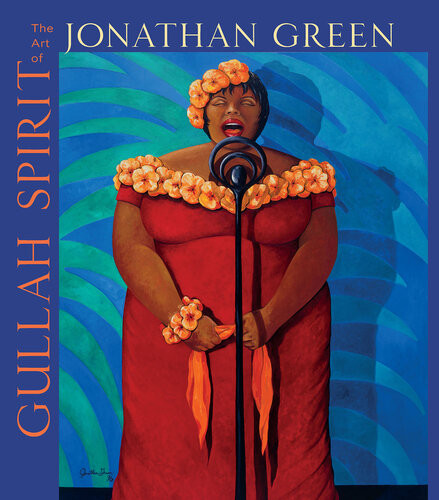

Most ebook files are in PDF format, so you can easily read them using various software such as Foxit Reader or directly on the Google Chrome browser.
Some ebook files are released by publishers in other formats such as .awz, .mobi, .epub, .fb2, etc. You may need to install specific software to read these formats on mobile/PC, such as Calibre.
Please read the tutorial at this link: https://ebookbell.com/faq
We offer FREE conversion to the popular formats you request; however, this may take some time. Therefore, right after payment, please email us, and we will try to provide the service as quickly as possible.
For some exceptional file formats or broken links (if any), please refrain from opening any disputes. Instead, email us first, and we will try to assist within a maximum of 6 hours.
EbookBell Team

4.1
30 reviewsJonathan Green is best known for his vibrant depictions of the Gullah life and culture established by descendants of enslaved Africans who settled between northern Florida and North Carolina during the nineteenth century. For decades, Green's vividly colored paintings and prints have captured and preserved the daily rituals and Gullah traditions of his childhood in the Lowcountry marshes of South Carolina.
While Green's art continues to express the same energy, color, and deep respect for his ancestors, his techniques have evolved to feature bolder brush strokes and a use of depth and texture, all guided by his maturing artistic vision that is now more often about experiencing freedom and contentment through his art. This vision is reflected in the 179 new paintings featured in Gullah Spirit. His open and inviting images beckon the world to not only see this vanishing culture but also to embrace its truth and enduring spirit.
Using both the aesthetics of his heritage and the abstraction of the human figure, Green creates an almost mythological narrative from his everyday observations of rural and urban environments. Expressed through his mastery of color, Green illuminates the challenges and beauty of work, love, belonging, and the richness of community.
Angela D. Mack, executive director of the Gibbes Museum of Art in Charleston, South Carolina, provides a foreword. The book also includes short essays by historian Walter B. Edgar, educator Kim Cliett Long, and curator Kevin Grogan.